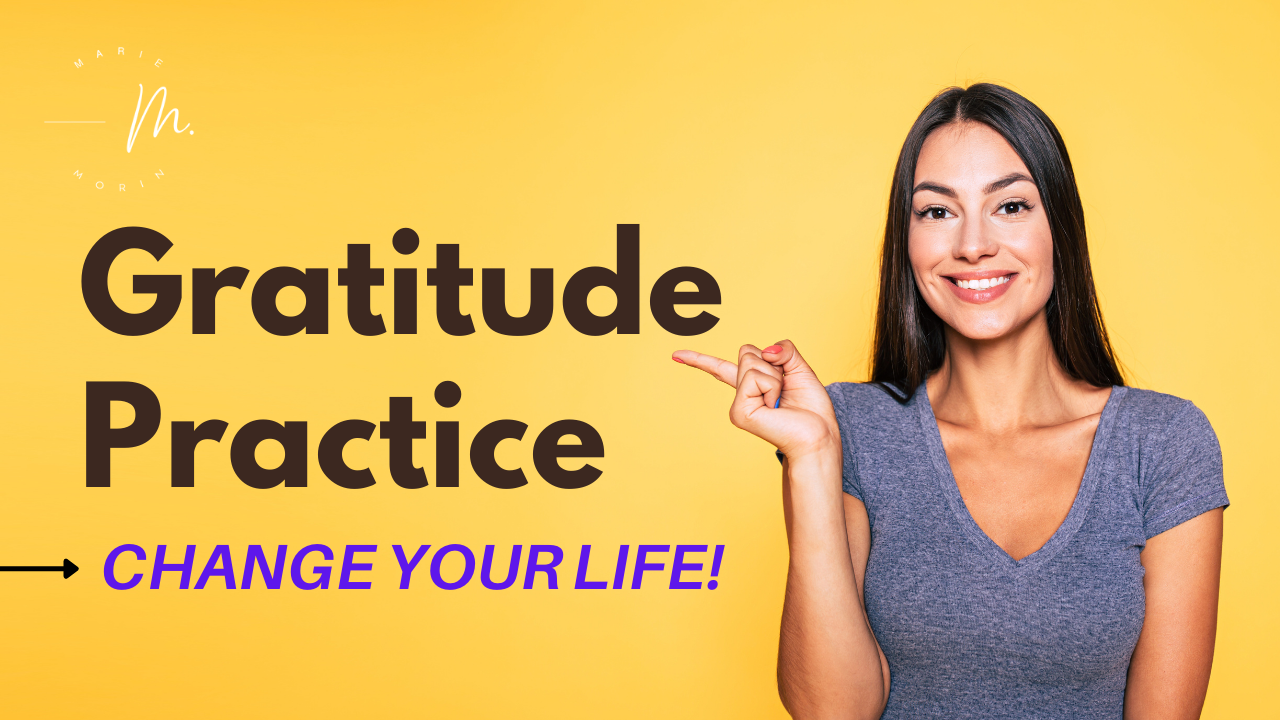Gratitude, thankfulness, and gratefulness are the superpowers of stress relief.
Our body and mind’s most intense enemy is stress, the antidote is gratitude. Stress disturbs our peace of mind, our state of contentment, and level of comfort. Simply, stress messes with your happiness.
Research on Happiness can be measured by determining life satisfaction (SWLS) in areas such as finances, work, spirituality, family relationships, love, and growth. Realistically, the potential for stressors, in one or more areas is highly likely. When there are stressful challenging events or relationships, naturally we experience negative perceptions and less happiness.
- What if the way in which we perceive our finances, work situations, and relationships is the key to well-being?
- What if we could alter the happiness factors by implementing research tested practices that are game changers for the way we view our challenges and ultimately how happy we are?
In this article, we explore the power of gratitude, 3 gratitude practices, how to implement them, and tips to creating the habit of gratitude and how to practice gratitude to change your life.
Benefits of Gratitude
We are commonly thankful for people, and grateful for things and events. When thinking and focusing on what we consider an opportunity to give thanks to someone or something, we mark it as valuable to notice. In this we actively participate in a powerful virtue with social, physical and emotional benefits. Gratitude helps relieve stress and anxiety by focusing your thoughts on what’s positive in your life. Studies on the effects of gratitude practice shows that those who partake experience increased self-esteem, better physical health, lower blood pressure, improved empathy and awareness of others’ feelings, improved sleep, and helps lower feelings of aggression. We are commonly thankful for people, and grateful for things and events. When thinking and focusing on what we consider an opportunity to give thanks to someone or something, we mark it as valuable to notice. In this we actively participate in a powerful virtue with social, physical and emotional benefits.
Simply Gratitude
The practice of gratitude has gained popularity with millions of studies on this powerful activity.
Certainly, the interest in gratitude stems from the surprising effects one gains when implementing various exercises. The idea is to have someone to be grateful and view the person and or actions bestowed as a gift. There are benefits gained and the act of gratitude acknowledges the benefits and their origin. We can also be grateful for the beauty of nature or an event. An excellent source to dive deeper into gratitude is Robert A Emmons’ “Gratitude Works.” Emmons’ 21-day Program for Creating Emotional Prosperity outlines an easy to follow method that brings results.
Research on Gratitude
An early study on the relationship of subjective well-being and found that gratitude influence one’s affect or feeling of well-being. Let’s explore the notion that having a positively influenced affect or feeling is a welcomed outcome. Studies suggest the relationship exists, individuals who practice gratitude journaling, gratitude letters, and recording 3 blessings, experience better moods and feelings of well-being. In essence, they are happier!! Also, gratitude promotes feeling more positive emotions, greater inner strength to deal with life’s challenges, as well as experiencing greater appreciation for other people. Practicing being grateful for what one has, shuts down the comparison habit that often plagues the best of us. Likewise, being grateful for the relationships we have, the people we are still blessed to share time with, opens the door to seeing the glass overflowing and not half empty.
Gratitude’s Roots
Gratitude has gained enormous popularity, with good reason, it is a powerful practice. Gratitude defined refers to being thankful for either an event or person. Gratitude is a sense of thankfulness for a gift. Gratitude has its roots in the Latin word gratia, or grace. We commonly understand grace to signify a special favor or privilege, or an act of kindness. Considered a virtue by the leading literary figure G.K. Chesterton who majored in all things regarding gratitude, large or small. Chesterton wrote, “The test of all happiness is gratitude.”
A few Simple Gratitude Favorites
- Keep a running list of what you are grateful for
- Keep a list of who you are grateful for and how that person has changed your life
- Keep a list of blessings
- Write thank you notes to those you want to express appreciation
The Powerful Three Gratitude Practices
1. Gratitude Journaling
The art of journaling is therapeutic on its own. Combining the act of writing, handwriting preferably that forces the mind to slow down and contemplate, is an excellent activity to gain emotional benefits. Your journal can be as special or simple as you choose, it just needs to serve the purpose of recording your thoughts and the date. It will become a diary of your gratitude journey to reflect, inspire, and celebrate the countless opportunities and blessings you will discover. Record lists of who you are grateful and why. Record events you appreciate. Remember to include the simple and small things you notice. Nothing is irrelevant or unimportant.
2. Record 3 to 5 Things that Went Well Today
In this practice, record and elaborate on what occurred that you recognize as blessings. It can be as simple as getting a parking spot, getting an item you’ve wanted on sale, seeing a rabbit in your garden, or seeing the smile of a child. You might include noticing you learned a new communication skill with someone you tend to be irritated with, perhaps you enjoyed your exercise routine, or you are grateful you were able to have lunch with a friend. The point of the exercise is to slow down and notice. You might also adopt on occasion, to think of the 3 things that went well before you go to sleep at night. Meditate on the wonder of the blessings that occurred as you fall into rest. Bonus points if you also do this practice before you start your day.
3. Write a Gratitude Letter
Writing the simple thank you note for a meal or a gift is always a good idea to show appreciation. The gratitude letter bumps this practice with details regarding the person you appreciate and the gift you celebrate. Your gratitude letter that can either be hand delivered, read to the recipient, or snail mailed, or you may decide to not share it. Take the time to expand your perceptions of why you are grateful and for what reasons you feel appreciation. This could be someone you knew as a child, a parent, a teacher, a family member, or a friend. Be specific with heartfelt honesty and transparency. How many people can you think of who you would love to honor and appreciate by writing a letter?
How to Get Your Gratitude Practice Started
Any daily practice can get old quickly if we don’t deliberately choose to switch things up to bring interest and novelty. For this reason, it is important to create a loose plan so follow in your intention towards gratitude.
Tips for Creating a New Habit
When creating a new habit, it helps to use linking. Linking involves taking something you do every day and then linking the new desired habit. For example, you may decide to write in your gratitude journal when you eat breakfast, or after you do your workout. You will need to be consistent in order to create the link. A few weeks will do the trick. Forget about using a timer and alarm, studies show these are ineffective in habit formation.
Be kind and compassion to yourself when it does not go as you planned. Sometimes our high perfectionistic standards foil even the best laid plans. Think of this new endeavor as a virtue in perception that includes your lens on yourself. Daily habits and rituals are amazingly helpful to foster productivity, confidence, and feelings of well-being. However, getting down on yourself because your plans didn’t work out is about as useless as a plastic knife. It just doesn’t cut it.
Keep it reasonable. Plan to do your practice about 3-5 days a week as opposed to everyday. While a daily practice is optimum, it’s important that the standard of keeping the practice not become an opportunity to be disappointed. When planning for success in any new endeavor requires a strategy that is achievable. Remember to make a point of giving yourself a pat on the back when you follow through. This works to deliver dopamine and encourage continued action and confidence to continue.
Plan to be Grateful Today
Gratitude is a powerful virtue with Practice Gratitude and Change Your Life
Gratitude, thankfulness, gratefulness, are the superpowers of stress relief.
Our body and mind’s most intense enemy is stress, the antidote is gratitude. Stress disturbs our peace of mind, our state of contentment, and our level of comfort. Simply, stress messes with your happiness.
Research on Happiness can be measured by determining life satisfaction (SWLS) in areas such as finances, work, spirituality, family relationships, love, and growth. Realistically, the potential for stressors, in one or more areas is highly likely. When there are stressful challenging events or relationships, naturally we experience negative perceptions and less happiness.
- What if how we perceive our finances, work situations, and relationships is the key to well-being?
- What if we could alter the happiness factors by implementing research-tested practices that are game-changers for the way we view our challenges and ultimately how happy we are?
In this article, we explored the power of gratitude, 3 gratitude practices, how to implement them, tips to creating the habit of gratitude, and how to practice gratitude to change your life.









